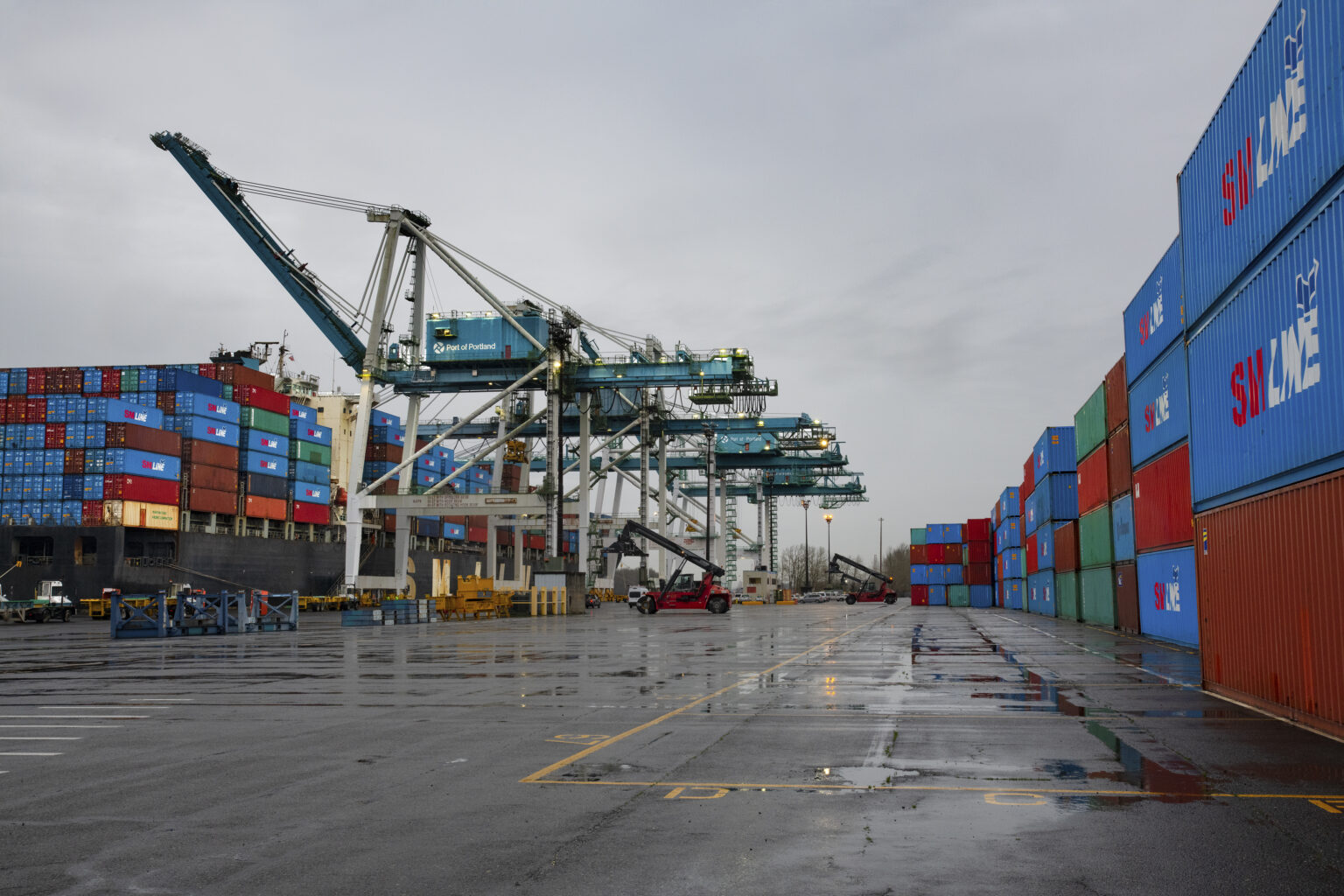Capital Chatter: Two policies more alike than you think
Published 8:00 am Thursday, February 14, 2019

- Capital Chatter: The real reason that HB 2020 failed
This column might irritate people throughout the political spectrum but bear with me.
The Oregon Legislature’s Joint Committee on Carbon Reduction will begin its public hearings Friday afternoon, Feb. 15, on House Bill 2020 — the cap-and-trade bill known as Clean Energy Jobs. The hearings continue Monday evening at the State Capitol.
Trending
Then the committee hits the road for hearings: Friday, Feb. 22, noon to 3 p.m. in Springfield; Saturday, Feb. 23, 9 a.m. to noon, Medford; Monday, Feb. 25, a Capitol videoconference hearing with locations around the state; Friday, March 1, noon to 3 p.m., The Dalles; and Saturday, March 2, 9 a.m. to noon, Bend.
Listening to the political and environmental arguments so far, I’ve been struck by the similarities between that Oregon legislation and President Donald Trump‘s border wall.
Both are expensive. Both fulfill campaign promises but for opposite ends of the political spectrum. Both are largely symbolic as far as their actual impact, though their supporters would vehemently disagree. Both do little to solve the overriding issue.
Yes, these are generalizations. But let’s start with the border wall.
Little evidence exists that it could achieve its stated purpose, which Trump said was deterring criminals, terrorists and drugs from illegally coming into the U.S. from Mexico. However, the wall certainly would be a symbol — an expensive and potentially counterproductive one — of America’s protecting its borders.
Meanwhile, Trump and Congress are not doing diddly about the big issue: Our immigration system is archaic and overburdened, the backlog of cases is huge, and the system needs a top-to-bottom overhaul.
Trending
Got it? So how is this like Oregon House Bill 2020.
It’s purpose is to reduce greenhouse gas (GHG) emissions, which contribute to climate change and whose effects already have been disastrous to Oregon farms, forests and fisheries and to our state’s quality of life.
The symbolism is this: Anything Oregon does will achieve imperceptible, perhaps unmeasurable, reductions in global greenhouse gas emissions and the resulting climate change. There could be local improvements in air pollution and community health, but It’s not as if burning less fossil fuel locally will save Oregon from drought or wildfires.
Neither is this comparable to our recycling bottles and cans, whose impact can be seen every day in the reduction of litter in our streets, parking lots and shrubs. Recycling is a case in which one person’s work can make a noticeable difference, even if a small one.
Gov. Kate Brown and Democratic legislators do have valid arguments, ones based on symbolism. Oregon has a moral and ethical responsibility to do its part to combat global warming. Every little bit helps. Oregon has a larger stake than many small nations that signed the Paris Agreement on climate change. Oregon’s participation in a carbon cap-and-invest network under HB 2020 would reassure those small countries and encourage other U.S. states and Canadian provinces to participate. The resulting increase in scale would impact greenhouse gas emissions, whereas Oregon’s failure to lead could discourage other states from acting.
A lobbyist from AAA Oregon/Idaho told the Legislature’s carbon committee this week that HB 2020, on top of previous environmental initiatives, would cause Oregon to have the nation’s third-highest gasoline prices. Some committee members would like even higher prices to force people to change their transportation habits.
Everything is assumptions or projections, from the promises contained in Clean Energy Jobs to its potential downfalls. With that caveat, it does appear that Oregonians will pay more for fuel, utilities and some products.
It does seem illogical — and disingenuous — to tell Oregonians they should support Clean Energy Jobs because climate change already is driving up economic and environmental costs. Those effects will exacerbate regardless of whether HB 2020 passes.
In the Oregon Global Warming Commission’s report for the 2019 Legislature, chair Angus Duncan had this to say about consumption-based greenhouse gases: “If we ended GHG emissions tomorrow, climate change effects would persist and worsen for decades to come. Cutting climate change off from its GHG fuel is like stopping a ship’s engines: it does not stop the inertial forward motion but only allows it to gradually slow.”
He went on to make the argument of science and ethics: “Our children, and theirs, will be living for decades with the worsening consequences of our failure to take timely action when we knew we should. Bad as that is, further delay only makes it worse.”
Again, that is a legitimate argument.
Meanwhile, the governor and Legislature are doing little to address the immediate issue: how to handle the changes already under way in our environment and our economy.
Sea levels are rising. Fisheries are declining, although new opportunities might arise. Warmer winters hurt snow-based tourism, reduce the snowpack that supplies our water and increase the likelihood of drought. Changing temperatures affect agriculture and forage for livestock and wildlife. At least wildfires are getting some attention from the governor and Legislature.
Oregon polls indicate Democrats and Republicans alike are worried about climate change and favor action. I maintain we are not actually committed until we stop idling our carbon-emitting cars in drive-thru lanes and instead park, turn off the engine and walk inside to conduct our business … even when it’s raining.
Passing a climate-change law that puts the burden on someone else — certain carbon-emitting industries — is easier than personally changing our habits and politically confronting today’s threats created by climate change.
This is why I think Clean Energy Jobs, regardless of its value, has much in common with Trump’s border wall.
An ending thought: For the sake of political consistency — an uncommon trait — must politicians either be supportive of both or opposed to both?
Dick Hughes, who writes the weekly Capital Chatter column, has been covering the Oregon political scene since 1976. Contact him at TheHughesisms@Gmail.com , Facebook.com/Hughesisms, YouTube.com/DickHughes or Twitter.com/DickHughes.





